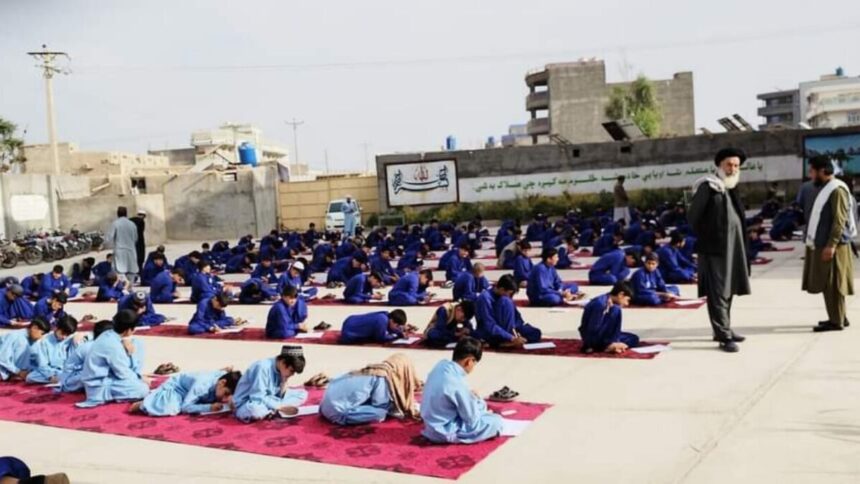RASC News Agency: Reports from Farah province reveal that the Taliban has mandated the study of its “Law of Propagation of Virtue and Prevention of Vice” for students across the region. The Taliban-led Directorate of Education in Farah, in partnership with a private school and the provincial virtue enforcement department, recently organized a competitive examination to assess knowledge of this law. Previously, the Taliban’s provincial office in Daykundi announced that it had commenced mandatory education and interpretation of this law for government employees under its authority. This policy has ignited widespread domestic and international criticism, with detractors decrying what they view as harsh and unjust applications of Islamic doctrine.
The Taliban’s law notably omits any reference to protecting girls’ right to education from an Islamic perspective. Instead, it imposes strict limitations on women’s public visibility and prohibits their voices in public spaces, declaring the sound of women’s voices as “forbidden” in areas where men are present. In a recent statement, Khalid Hanafi, the Taliban’s Minister of Virtue and Vice, controversially asserted that the voices of adult women are “forbidden” even among other adult women.
This position has drawn sharp rebuke from religious scholars, who argue it reflects an extreme interpretation of Islam. However, the Taliban continues to uphold its stance, portraying itself as the most faithful interpreter of Islamic teachings and dismissing the perspectives of broader Muslim communities.






